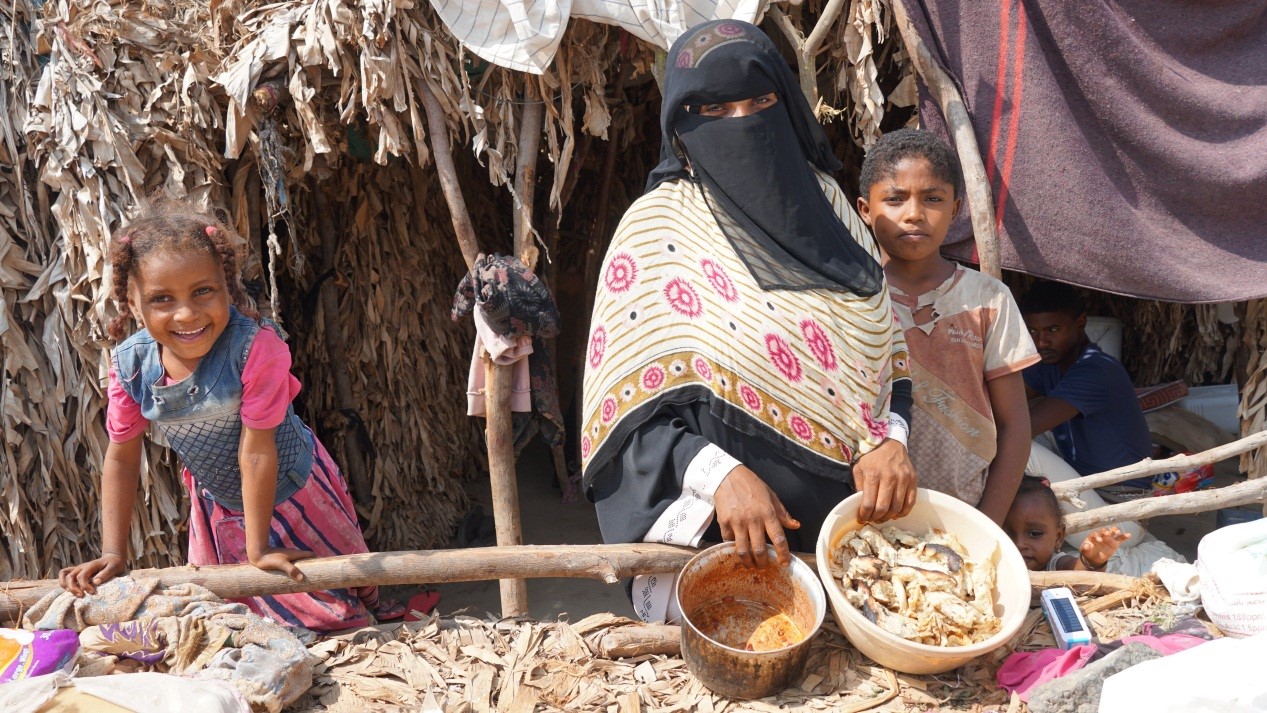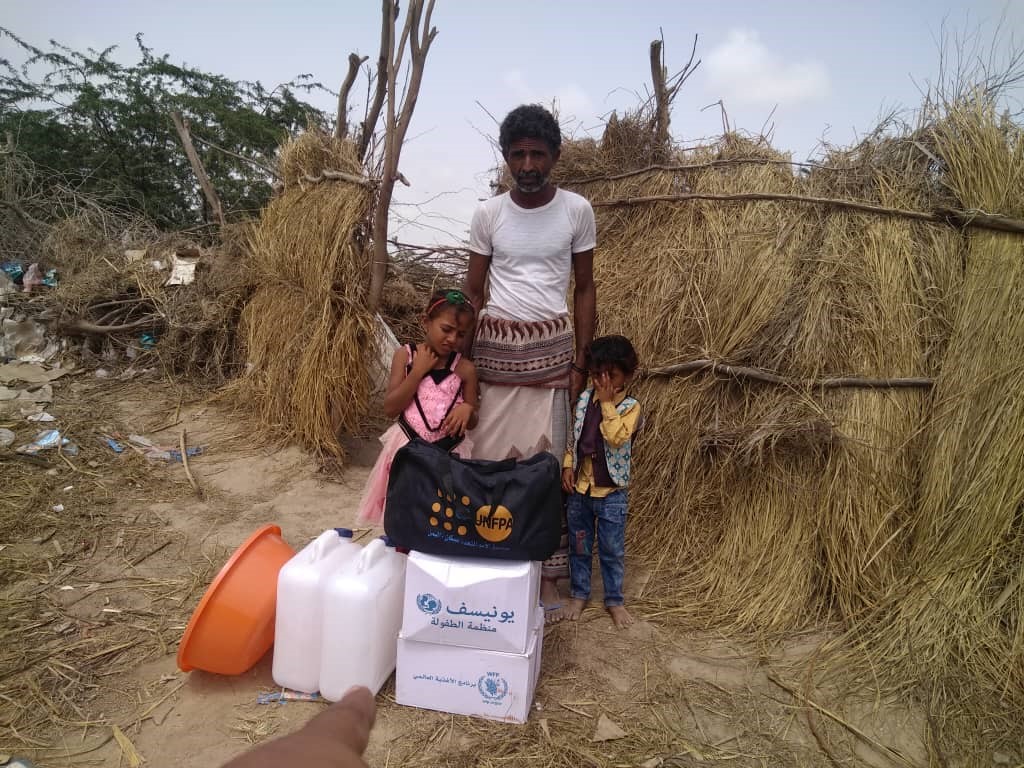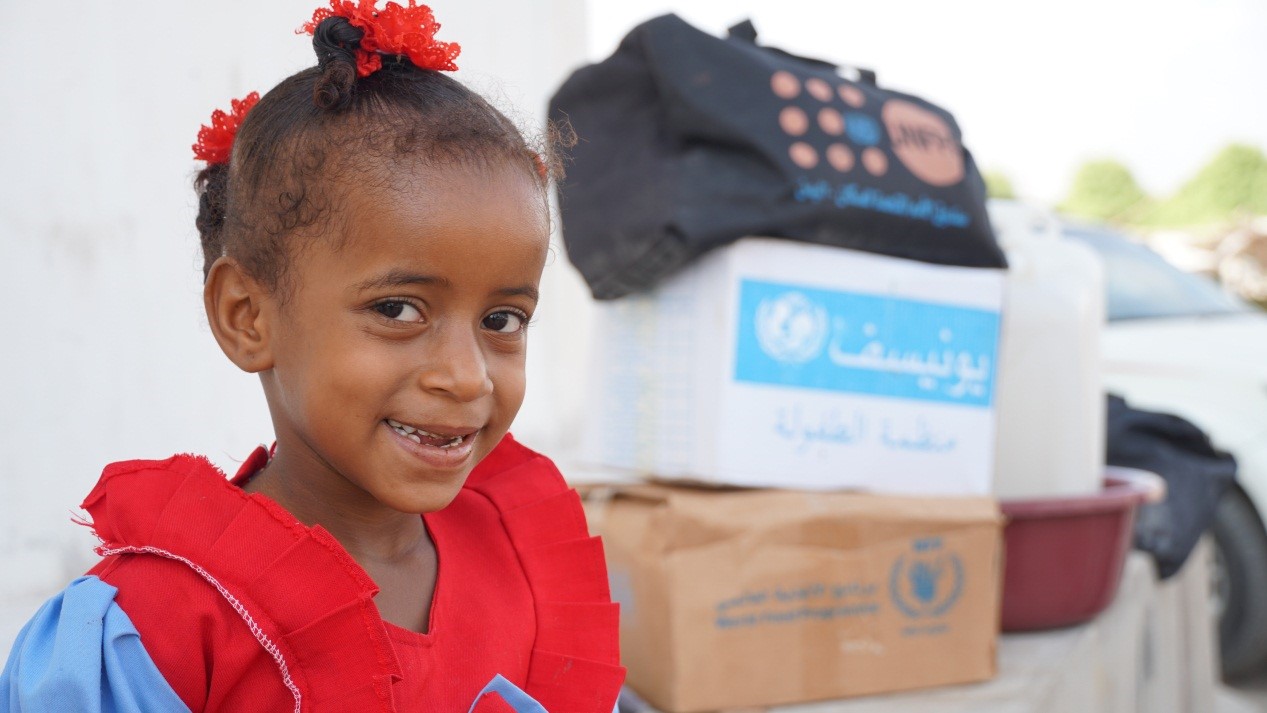Like Eissa’s family, 41-year-old Youssef fled the fighting in his hometown in Al Hodeidah, with his wife and their five children seeking refuge in Kanfar camp near Zangbar, a district in Abyan governorate. Reminiscing about his old life in Al Hodeidah, Youssef says: “I used to earn a daily wage to feed my family and live peacefully in my small house. Now we hardly have enough food. I go from one place to another to clean cars. Sometimes my wife goes out to beg for food.”
When they reached Abyan, both Eissa and Youssef were comforted to receive an urgent relief package consisting of basic food goods, female-focused supplies, and a hygiene kit through the Rapid Response Mechanism (RRM) project. In partnership with UNFPA, CARE has supported 2,050 displaced families like Eissa’ and Youssef’s in the Abyan governorate with rapid relief packages.
Responding in time to the arrival of displaced families is critical. It saves lives, helps prevent the spread of disease, and can alleviate direct suffering for communities that have already suffered too much. The RRM packages provided immediate relief. The food kit was quickly consumed, and the hygiene kits and dignity kits were extremely appreciated by the families.
“I’m grateful for the immediate assistance that I received, thanks to CARE and UNFPA,” says Eissa. “We will stay here until the situation calms down, then we will hopefully return to our hometowns,” he concludes.



